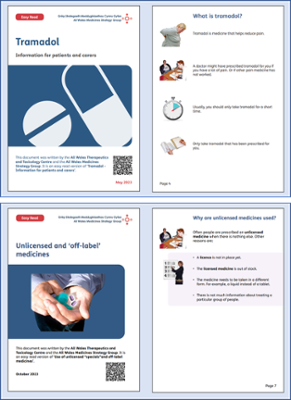How AWMSG and AWTTC support equality, diversity and inclusion
13 December 2023
The All Wales Medicines Strategy Group (AWMSG) and the All Wales Therapeutics and Toxicology Centre (AWTTC) work to improve the safe use of medicines in Wales, and to make sure that people in Wales can access clinically effective and cost‑effective medicines when they need them.
AWMSG and AWTTC also work to achieve the seven well-being goals of the Well‑Being of Future Generations (Wales) Act (2015), and follow the Act’s five ways of working, including collaboration, and involvement. AWTTC involves lay people, patients and carers in its work, and must also make sure it involves people who reflect the diversity of the area that AWMSG and AWTTC serve.
AWMSG and AWTTC aim to reduce inequalities and improve inclusion by:
- ensuring the AWTTC website, and all published documents, are accessible
- holding virtual meetings of our Patient and Public Interest Group
- completing equality and health impact assessments
- publishing AWTTC’s work in Welsh and English; with staff commended for their high-quality work to meet Welsh language standards
- producing patient information leaflets in plain language and easy‑read formats
Equality and health impact assessments
Members of Cardiff and Vale University Health Board’s Equity and Inclusion team have supported AWTTC staff to undertake equality and health impact assessments (EqHIAs), and to develop AWTTC’s own EqHIA template.
AWTTC, working with the resource author, complete an EqHIA for every resource that AWMSG is asked to endorse. They aim to help AWMSG and its sub‑committees to consider the impact of their work on people in Wales. The assessments require consideration of the potential policy impact on people on the basis of their ‘protected characteristics’, and ensure that mitigating actions are considered. Each EqHIA is published on the AWTTC website for comment. For an example, see the All Wales paediatric asthma management and prescribing guidelines.
In January 2023, AWTTC also established an Equality Group made up of staff from the different sections of AWTTC. It aims to promote equality, diversity and inclusion within our organisation, and ensure that AWTTC conducts and publishes high-quality EqHIAs for its projects.
Listening to the public voice
Members of the public are invited to attend virtual meetings of AWTTC’s Patient and Public Interest Group (PAPIG). Attendees can hear about AWTTC’s work and that of other NHS Wales organisations, ask questions, and find out how they can get involved.
AWMSG and its sub-committees include lay members. Lay members have highlighted the importance of making sure that documents published on the AWTTC website are accessible to all. This includes publishing easy‑read formats of patient information leaflets. Easy‑read patient information leaflets are helpful for people with learning disabilities and also for people who don't identify as having a learning disability but for whom some technical documents would be inaccessible.
Working with Learning Disability Wales
 People with a learning disability have a right to information they can understand so they can make informed choices, speak up, and take part in their communities. Learning Disability Wales take complex documents and turn them into high standard easy‑read versions, so that people with learning disabilities can understand them.
People with a learning disability have a right to information they can understand so they can make informed choices, speak up, and take part in their communities. Learning Disability Wales take complex documents and turn them into high standard easy‑read versions, so that people with learning disabilities can understand them.
In 2023, several AWTTC staff attended Learning Disability Wales’ training course on making information easy to read and understand. Learning Disability Wales also presented at a PAPIG meeting in July 2023, on the importance of making information accessible and inclusive.
In partnership with Learning Disability Wales, AWTTC developed an easy-read leaflet on Tramadol. The easy‑read format was adapted from the patient information leaflet that accompanied the Tramadol educational resources. This pilot easy‑read leaflet was published in July 2023, and a second leaflet on Understanding unlicensed medicines was published in October 2023.
AWTTC will continue working with Learning Disability Wales and other organisations in Wales to develop easy‑read formats for all AWMSG-endorsed patient information leaflets.